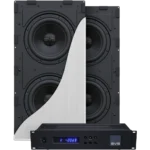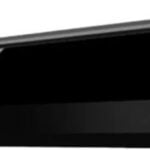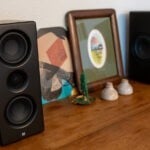Troy Swanson
Grip
- Joined
- May 21, 2004
- Messages
- 18
I know decibels are a measure of a speakers effciency.
Higher the number, less power required to achieve a desired SPL.
When and how much makes a difference.
I have a pair of Wharfedale diamond 8.1 bookshelves rated at 86 dB at 1 meter.
I am looking at replacing them with a pair of Klipsch B-2s rated at 92 dB at 1 meter.
How significant is 6 decibels from 86 to 92?
Higher the number, less power required to achieve a desired SPL.
When and how much makes a difference.
I have a pair of Wharfedale diamond 8.1 bookshelves rated at 86 dB at 1 meter.
I am looking at replacing them with a pair of Klipsch B-2s rated at 92 dB at 1 meter.
How significant is 6 decibels from 86 to 92?





